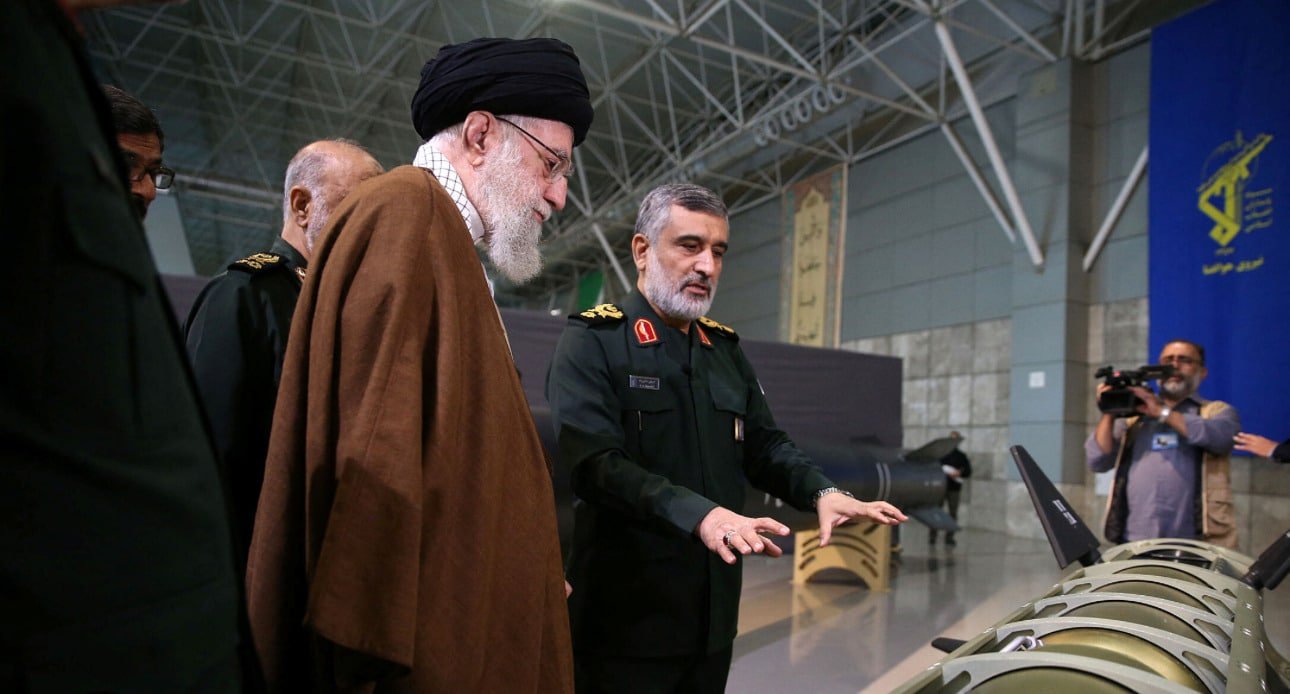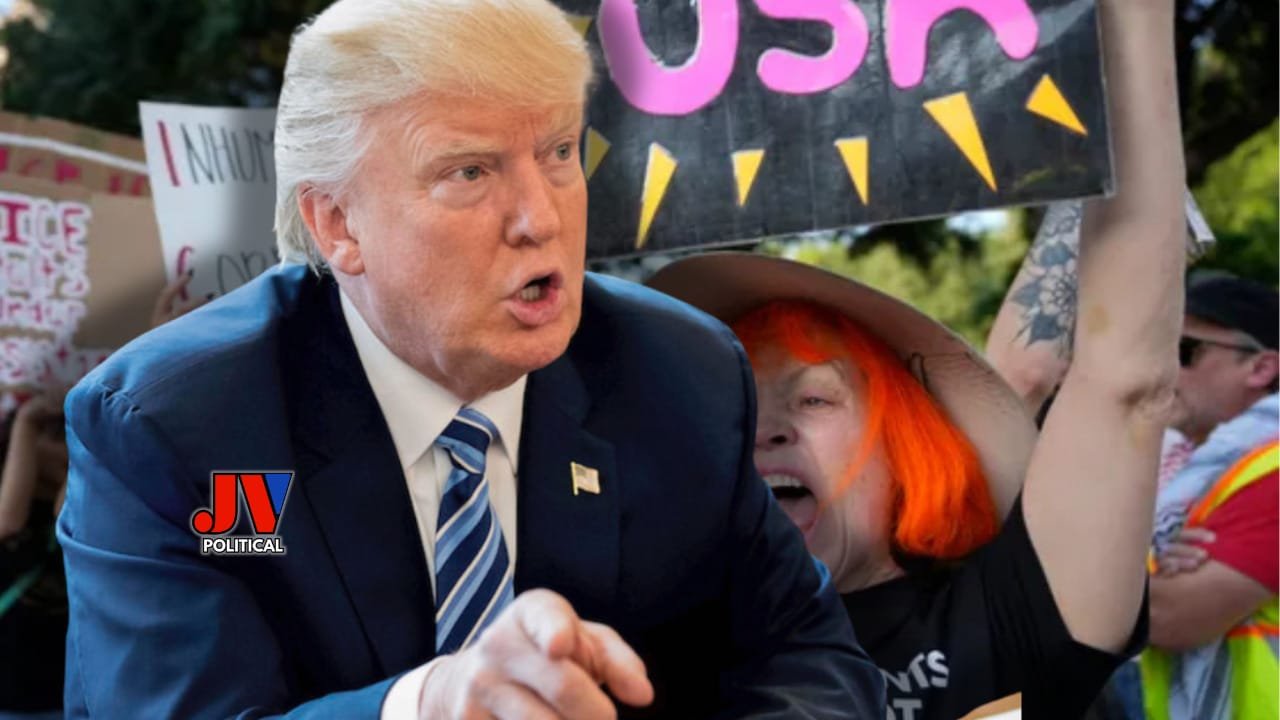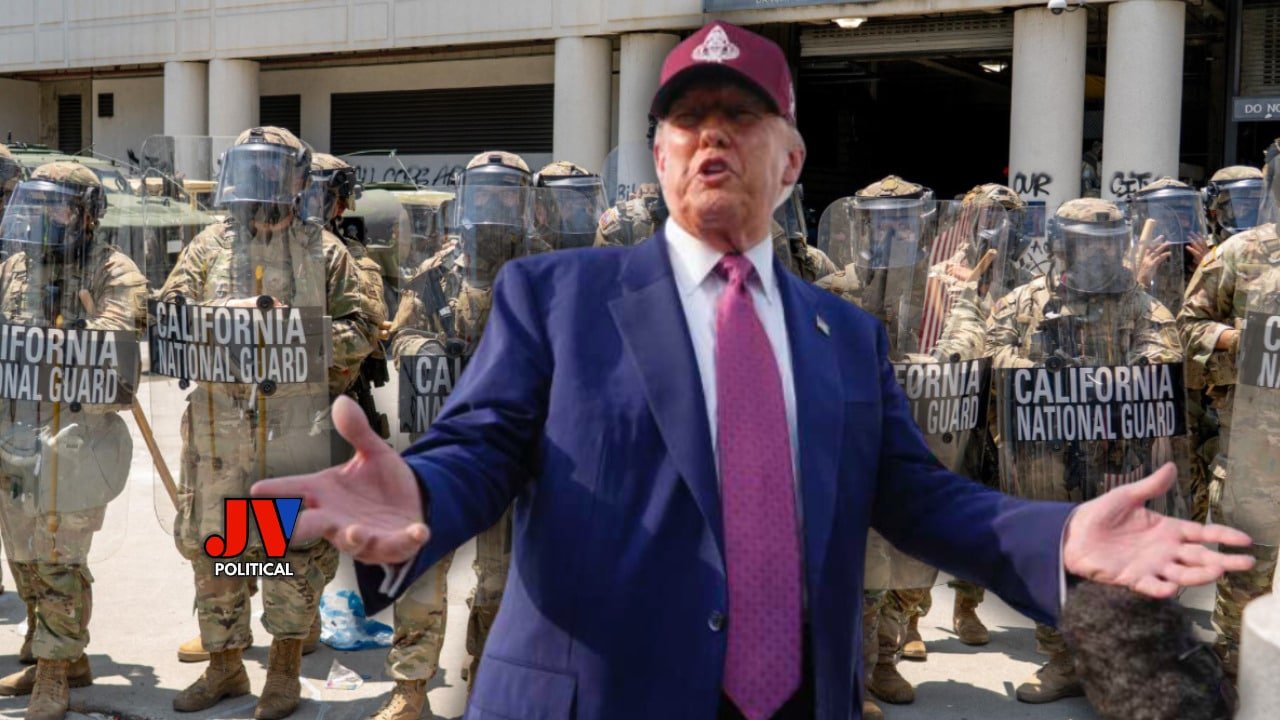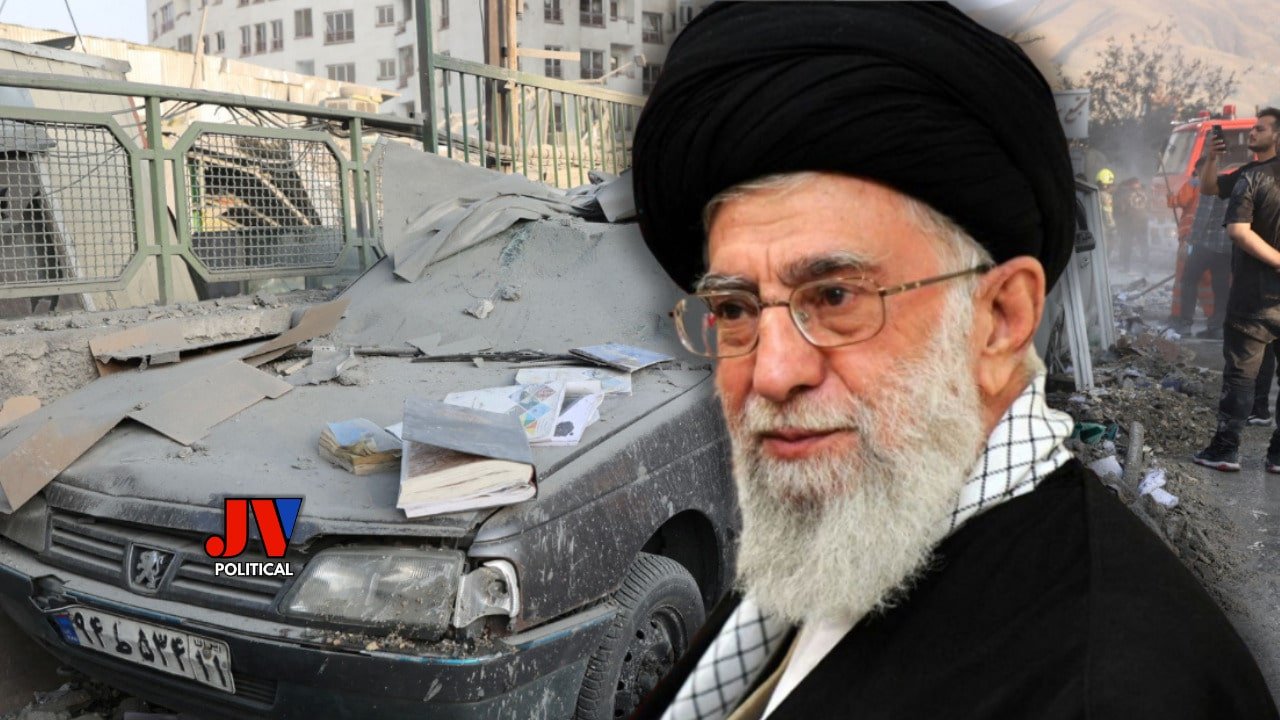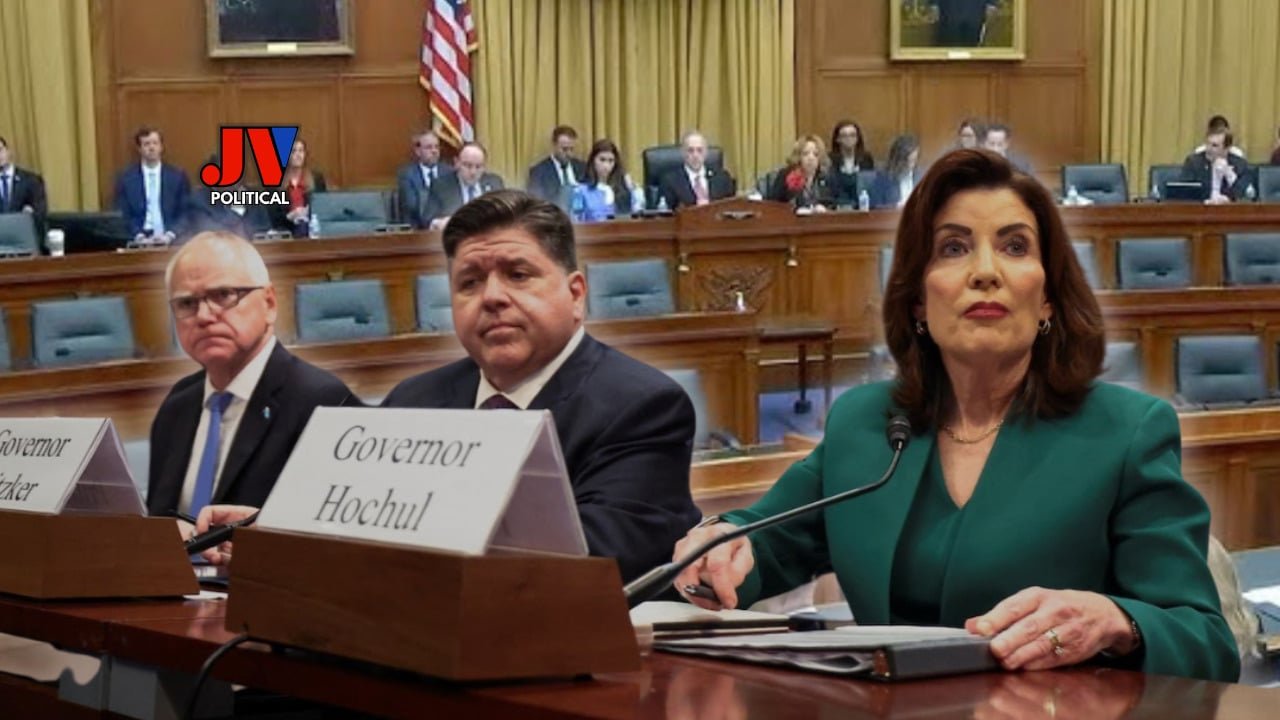BREAKING: Trump Halts Israeli Attack on Iran, Favors Talks 4/17/25
Officials briefed on the matter revealed to The New York Times that President Donald Trump stopped Israel’s planned strike on Iranian nuclear sites in May and chose to initiate talks with Tehran about its nuclear activities.
After several months of U.S. internal discussions regarding support for Israel’s plan to delay Iran’s nuclear progress by at least one year the decision was made. The detailed military plans developed by Israeli officials depended on American support which included deploying U.S. aircraft and defense systems for mission success and Israel’s protection from counterattacks.
Gen. Michael E. Kurilla and national security adviser Michael Waltz, along with some other U.S. officials, showed their support for military backing of Israel but several officials had reservations.
Tulsi Gabbard, Director of National Intelligence, expressed concerns that any U.S. military buildup might lead to an enlarged conflict. White House chief of staff Susie Wiles along with Defense Secretary Pete Hegseth and Vice President J.D. Vance expressed their doubts. Vance also voiced doubts.
The Trump administration had positioned significant military assets in the region such as two aircraft carriers and B-2 bombers along with missile defense systems. The deployments had dual purposes to target Iran-backed Houthi militants in Yemen as well as prepare for potential strikes against Iran.
During a White House meeting on April 7, Trump told Israeli Prime Minister Benjamin Netanyahu about his decision and announced the initiation of U.S.-Iran negotiations.
Netanyahu expressed in Hebrew that any Iran agreement would be effective only if it permitted American supervised entry to destroy facilities and dismantle equipment.
Key Takeaways
- Trump has decisively blocked an Israeli military strike on Iran.
- This decision marks a significant shift in US foreign policy toward diplomatic measures.
- The move aims to reduce tensions in the volatile Middle East.
- Trump prioritizes dialogue over military action in foreign relations.
- This intervention reflects a commitment to preserving American leadership in geopolitics.
Introduction to Trump’s Diplomatic Shift
The Middle East is at a key moment, with ongoing conflicts showing the fine balance between nations. Tensions, like those between Israel and Iran, make it vital to rethink diplomacy, with the U.S. leading the way. Trump’s move towards diplomacy is a big step, showing his commitment to solving conflicts through talks, not war.
Overview of the Current Situation in the Middle East
The Middle East is filled with uncertainty, driven by ongoing military actions and power struggles. Israeli military actions have increased, causing severe humanitarian crises and civilian deaths. The Israeli presence in Gaza, Lebanon, and Syria makes things even more complicated.
This situation sets the stage for Trump’s diplomatic efforts. He aims to bring stability and peace through careful negotiations.
Importance of U.S. Foreign Policy in Regional Conflicts
U.S. foreign policy is key in shaping conflict and cooperation in the Middle East. Trump’s focus on diplomacy shows a new understanding of the need for American involvement. By choosing dialogue, the U.S. hopes to reduce violence and create a lasting peace.
This approach reflects American values, showing the nation’s duty to promote stability in a chaotic region.
Trump Blocks Israeli Strike on Iran, Opts for Diplomacy Instead
President Trump recently stopped Israel’s planned attack on Iran. This move shows a big change in how the U.S. handles Middle East conflicts. It’s part of a plan to avoid war and talk things out instead.
This choice shows how hard it is to make big decisions in a tense area. It’s a sign of the U.S. trying to find peaceful solutions.
Details on Trump’s Decision-Making Process
Trump talked to many advisors and military leaders before making this choice. He wanted to understand all the possible outcomes. His choice to talk instead of fight shows he knows the risks of war.
By choosing diplomacy, Trump’s team wants to show that talking is better than fighting. This could be a new way for the U.S. to handle tough situations.
Implications for Israeli-Iranian Tensions
Stopping the Israeli attack could make things less tense between Israel and Iran. It might even start a conversation between them. These two countries have been at odds for a long time.
Trying to avoid war could make other countries think about talking instead of fighting too. This could make the Middle East a safer place.
The Role of Geopolitical Decision-Making in this Context
Big decisions in world politics are very important. Trump’s choice to stop the Israeli attack is a big deal. It can change how countries work together and affect global policies.
Every move by a country tells a story about its values and goals. By choosing diplomacy, Trump’s team wants to show a new way for the U.S. to handle tough situations. They believe in talking and finding peace.
| Aspect | Details |
|---|---|
| Decision-Maker | President Trump |
| Key Strategy | Opting for diplomacy instead of military action |
| Consultation | Involvement of advisors and military leaders |
| Impact on Relations | Potential easing of Israeli-Iranian tensions |
| Geopolitical Influence | May alter U.S. Middle-East relations towards dialogue |
Analyzing the Reaction from Key Players
The U.S. decision to stop Israeli military action has caused mixed reactions. These reactions show deep concerns about security, diplomacy, and stability in the region. They give us a glimpse into the bigger picture of international relations and politics.
Israeli Government’s Response and Concerns
The Israeli government is worried and unhappy about the pause in military action. They fear it might make Iran bolder, putting Israel’s safety at risk. They worry about the risks of diplomacy when facing an aggressive regime.
Israel’s need for security is urgent. It highlights the fine line between military action and diplomacy.
Iran’s Position and Possible Reactions
Iran seems cautiously optimistic about Trump’s move. They see it as a chance to ease tensions in the area. But, they are also cautious about U.S. motives.
Iran’s history shows they are careful in such situations. They might engage in talks but will do so with caution.
Reactions from U.S. Political Figures and Analysts
In the U.S., opinions are sharply divided. Some conservatives want a strong military stance against Iran. They fear appearing weak. Others believe in talking to prevent future conflicts.
Experts see this as a critical moment. It shows the mix of fear and hope in diplomatic efforts.
| Stakeholder | Reaction | Concerns |
|---|---|---|
| Israeli Government | Concern and dissatisfaction | Fear of emboldening Iran |
| Iranian Leadership | Cautiously positive | Skepticism of U.S. intentions |
| U.S. Political Figures | Divided responses | Risk of perceived weakness vs. possible diplomacy |
Conclusion
Trump’s bold move to stop an Israeli strike on Iran is a key moment in U.S. foreign policy. It shows a shift from old ways to a new focus on talking things out. This change could lead to more peaceful solutions and challenge how the U.S. deals with enemies.
This move towards diplomacy shows our dedication to a stable world. America’s leadership role reminds us of the value of peace over war. Trump’s approach gives us hope for a future where talking is the first choice, helping to avoid more conflict in the Middle East.
We must stick to our values of freedom, respect, and peace as we move forward. The U.S. protects these values, working to solve today’s problems and build a better tomorrow. Keeping our principles strong is our duty, as we aim for lasting peace in a world full of challenges.
FAQ
What was President Trump’s decision on April 17, 2025, regarding Israel and Iran?
President Trump decided to stop an Israeli military strike on Iran. He chose diplomacy over war.
Why is Trump’s decision significant for U.S. foreign policy?
This move shows a shift towards talking things out in U.S. foreign policy. It highlights the value of peaceful solutions in the Middle East.
How might this impact Israeli-Iranian tensions?
Trump’s action aims to lower tensions and bring stability. But it also worries Israel about Iran’s threats.
What are the broader implications of this decision for geopolitical relations?
Trump’s decision might inspire other countries to try diplomacy. This could change U.S.-Middle East relations.
How has the Israeli government responded to Trump’s intervention?
Israel is worried. They think stopping the strike might let Iran get bolder and threaten Israel’s safety.
What is Iran’s reaction to Trump blocking the military strike?
Iran is cautiously optimistic. They see it as a chance to calm things down. But they’re not sure about U.S. motives.
What are the views of U.S. political figures regarding Trump’s decision?
U.S. politicians have mixed opinions. Some want strong action against Iran. Others see diplomacy as a good thing.
What does this situation reveal about U.S. leadership in international relations?
This shows America’s role in promoting talks and peace. It highlights the importance of traditional values in global politics.



